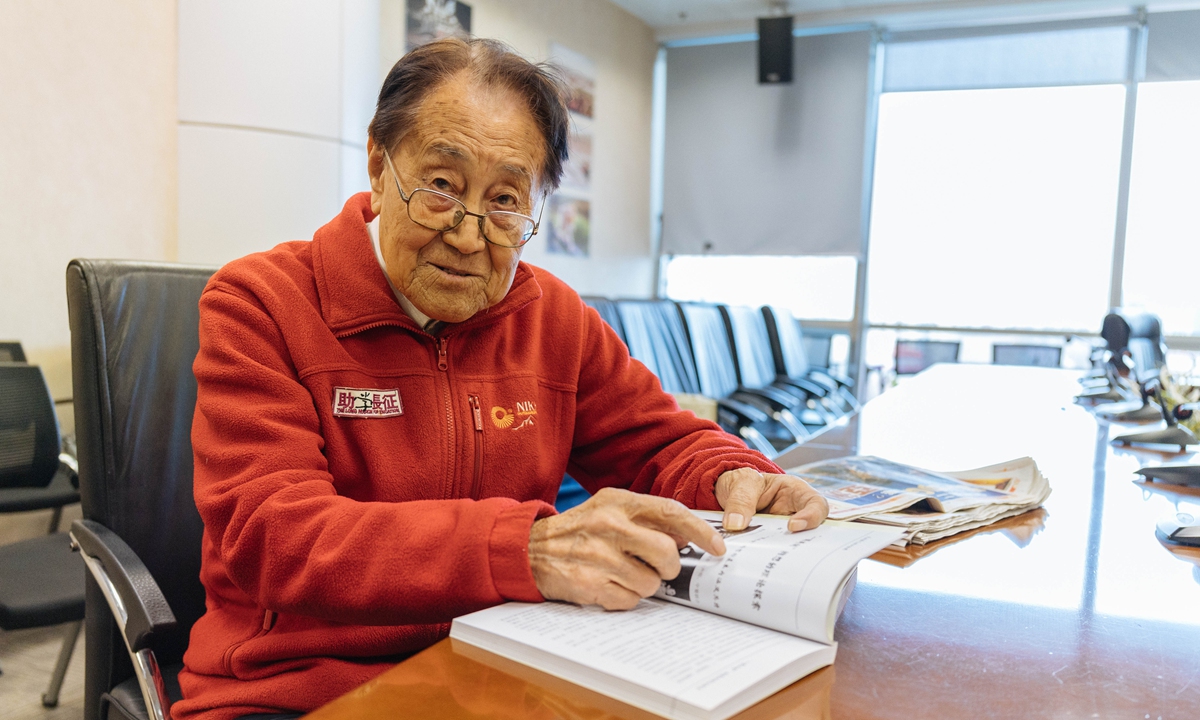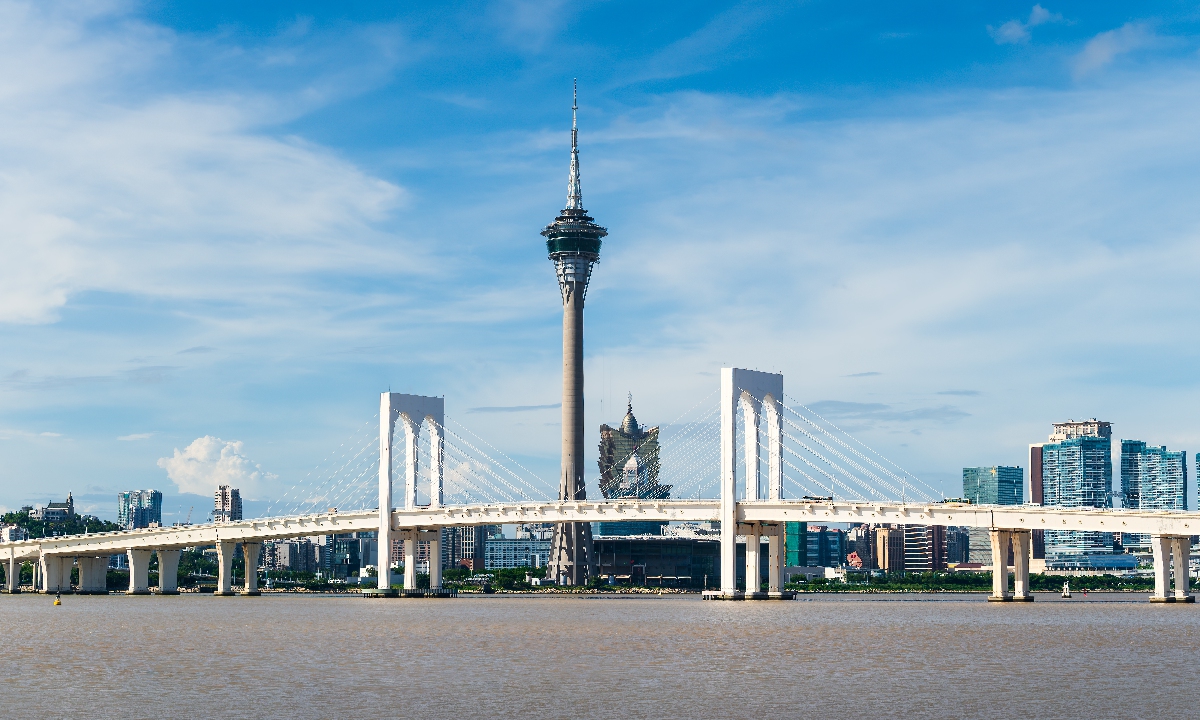Editor's Note: December 20, 2024, marks the 25th anniversary of Macao's return to the motherland. It not only signifies the ended centuries of Portuguese occupation, but also heralds the beginning of a new chapter for Macao Special Administrative Region (SAR).
On this momentous day, those who witnessed this grand event 25 years ago are filled with emotions. With excitement, they shared their memories with the Global Times, recounting the development and changes in Macao since its return and highlighting precious historical details. Their experiences serve as a testament to the enduring emotional connection and consistent, firm direction of development between Macao and the mainland.
This story is also part of the Global Times' "Witness to History" series, which features first-hand accounts from individuals who were at the forefront of historic moments. From scholars, politicians, and diplomats, to ordinary citizens, their authentic reflections on the impact of historical moments help reveal a sound future for humanity through the solid forward steps taken in the past and the present.

Zong Guangyao, former deputy director of the Liaison Office of the Central People's Government in the Macao Special Administrative Region Photo: Li Hao/GT
"My feelings for Macao are deep. I can't let them go," Zong Guangyao fondly recalled to the Global Times, when sharing his connection with this special place.
Zong, 87, cherishes his 12 years of working and living in the SAR as the most valuable chapter of his life.
In 1987, a historic milestone was reached with the signing of the Joint Declaration between the Government of the People's Republic of China and the Government of the Republic of Portugal on the Question of Macao in Beijing. This agreement confirmed that Macao would return to China on December 20, 1999, a date that would reshape the destiny of the city.
Two years later, in 1989, Zong embarked on his journey to Macao. As the deputy director of the Liaison Office of the Central People's Government in the Macao Special Administrative Region (SAR), Zong was at the forefront of this significant period. Prior to this, he had held multiple key positions, including membership and deputy secretary-general of the Drafting Committee for the Basic Law of the Macao SAR, and deputy director of the preparatory committee for the hand-over ceremony. During 12 years of work in Macao, he witnessed numerous important historical moments in the development of the city.
Resolving Macao questionAs the 25th anniversary of Macao's return to China draws near, Zong recounted with the Global Times that he was invited by Macao students studying in Beijing to attend a get-together to share his firsthand account of the historic return. Many among the younger generation are intrigued by the choice of December 20 as the return date.
He explained to the students that although being occupied by Portugal since 1557, Macao lacked any historical treaty agreements to guide its return.
Following the determination of Hong Kong's return date, the Chinese government initiated negotiations with the Portuguese government on the Macao question in 1986. "Initially, Portugal wished to defer discussions until the 21st century, but we were resolute in our refusal," Zong recalled. "We could not allow the legacy of past humiliations to persist into a new century."
Zong noted that after some concessions from Portugal, they suggested December 31, 1999, as a potential return date for Macao. "However, this proposal was also dismissed by China," he said. "The proximity to the millennium was one concern; another was our desire to ensure the transfer occurred before Christmas so that the Portuguese can celebrate the holiday at home," Zong explained.
After extensive negotiations, December 20, 1999, was agreed upon as the day for Macao's return. Zong attributes the relatively smooth handover to China's burgeoning strength, the far-sighted consideration of the central government, and the collective efforts of Macao's residents.
Locals at the heart of the celebrationZong's chest swells with pride when he reflects on his role in orchestrating the momentous celebration on Macao's return to China. On December 21, 1999, nearly 10,000 local performers from Macao took center stage at the grand festivities. The vibrant performances ranged from a majestic thousand-member waist drum team, dynamic martial arts displays, to the enchanting rhythms of the Portuguese folk dance, a testament to the cultural fusion that defines Macao.
The logistics of organizing such an expansive spectacle were daunting, a task that Zong entrusted to the capable hands of the local Macanese associations. He was particularly touched by the words of one person, Santos, who played a pivotal role in the success of the event. "Santos expressed with deep emotion that Macao would always be her home," Zong recounted. "She emphasized that the Macanese community should have rightful place in the grand celebration of Macao's return to China."
Zong also recalled an encounter with Macao's last Portuguese governor, Vasco Rocha Vieira, prior to the handover. "Vieira shared his initial apprehensions. He had feared that the Portuguese residents in Macao might face discrimination after the handover and have to eventually return to Lisbon. However, his worries were dispelled as he witnessed the celebratory performance plan, feeling the warmth and inclusiveness of the Chinese people."

The view of Macao Photo: VCG
Strong faith in the futureEven after retiring for many years, Zong's dedication to his beloved city of Macao remains unwavering. A daily ritual of his is to delve into the pages of the Macao Daily News, keeping himself abreast of the latest happenings in the city.
During the interview with the Global Times, Zong presented a special edition of the newspaper, dated October 10, 2024. This particular issue showcased a report highlighting Macao's impressive ranking as the second richest region globally and the top in Asia, according to Forbes magazine list 2024.
In the mid-16th century, when the Portuguese first set foot on Macao's shores, they inquired about the local name. The residents, misunderstanding the question, directed them to a Mazu Temple, leading to a mispronunciation that gave birth to the name "Macao."
Today, the city's inhabitants, including government officials like Zong, proudly affirm that the city embodies "one country, two systems" with "Macao's characteristics." With unwavering conviction, Zong envisions a future where Macao, a city to which he has devoted his life's work and love, continues to flourish and shine on the world stage.





